Find Help
Quick links
Contact RCI
Counselling Survivors of Sexual Violence Online

In April 2021, Rape Crisis Network Ireland undertook a Clinical Innovation Project (CIP) called Counselling Survivors On- and Offline led by Dr Michelle Walsh and funded by Rethink Ireland. The research included an online survey on remote counselling for survivors of sexual violence that aimed to discover levels of satisfaction among survivors with counselling before and during the pandemic and to find out more broadly whether or not the quality and safety of online counselling for survivors of sexual violence meets rights and expectations.
The report ‘A Safer Space: Counselling Survivors of Sexual Violence Online’ presents the findings from survivors and counsellors of remote counselling in their own words and supported by data garnered from the project.
(2022)
Terminology Guidelines for Data Collection Sexual Violence Against Children
 Breaking the Silence: Terminology Guidelines for Data Collection on Sexual Violence Against Children is the culmination of a collaboration with 28 organisations working in data collection and sexual violence against children, one of the most vulnerable and voiceless groups of all survivors. The project goal is a common language supported by guidelines for terminology on sexual violence against children. Adoption of the proposed shared terminology and definitions will bring data collection into line with international obligations, including the Istanbul Convention, and enable the collection of reliable, comprehensive and comparable data, thus breaking silences. This is important because the more comprehensive the picture of sexual violence against the child, the more comprehensive the advocacy, protection and interagency supports can be.
Breaking the Silence: Terminology Guidelines for Data Collection on Sexual Violence Against Children is the culmination of a collaboration with 28 organisations working in data collection and sexual violence against children, one of the most vulnerable and voiceless groups of all survivors. The project goal is a common language supported by guidelines for terminology on sexual violence against children. Adoption of the proposed shared terminology and definitions will bring data collection into line with international obligations, including the Istanbul Convention, and enable the collection of reliable, comprehensive and comparable data, thus breaking silences. This is important because the more comprehensive the picture of sexual violence against the child, the more comprehensive the advocacy, protection and interagency supports can be.
(2022)
An Exploration of Sexual Harassment Amongst Adolescents 2021
 Storm and Stress is a summary report of Dr Michelle’ Walsh’s PhD thesis on school aged children’s experience of sexual harassment and violence.
Storm and Stress is a summary report of Dr Michelle’ Walsh’s PhD thesis on school aged children’s experience of sexual harassment and violence.
Early intervention in children’s lives is the strongest commitment we can make to prevention and protection from sexual violence and understanding the experience of adolescents is the first step to shaping interventions that work. We hope that you will join us to launch this vital report on Irish adolescents’ experiences and understanding of sexual harassment within their peer communities, and the responses required to address it.
(July 2021)
Rape Crisis Adaption and Transformation during Lockdown
 RCI worked rapidly with the rape crisis centres to adapt to lockdown conditions from the beginning of 2020. Six months in we released this report documenting how survivors, staff and centres were being impacted by Covid and the public health response.
RCI worked rapidly with the rape crisis centres to adapt to lockdown conditions from the beginning of 2020. Six months in we released this report documenting how survivors, staff and centres were being impacted by Covid and the public health response.
(July 2020)
 Rape and Justice in Ireland, a groundbreaking book published in 2009 and commissioned by the Rape Crisis Network Ireland, is the result of a four year independent research study into the process of prosecuting rape cases in Ireland.
Rape and Justice in Ireland, a groundbreaking book published in 2009 and commissioned by the Rape Crisis Network Ireland, is the result of a four year independent research study into the process of prosecuting rape cases in Ireland.
This book is an important advance in our understanding of the reasons why so many rape cases are lost from the system during their progress from incident to reporting, to final court hearing, resulting in very low conviction rates for rape in Ireland. The book also offers a unique insight into the Irish justice system, as the authors were granted unprecedented access to the files of the Director of Public Prosecutions, the courts and the direct experiences of survivors of rape.
The key findings of this research expose the nature of the factors at play in navigating a rape case through the justice system. It shows how the quality of social and official support for survivors is vitally important in order to progress a case, and that survivors as well as officials tend to think and act in terms of “real rape” scenarios to the disadvantage of the majority of cases that do not fit those criteria. It also explores the factors that influence the DPP’s decision to prosecute and those put forward in successful and unsuccessful court cases.
Rape and Justice in Ireland concludes with recommendations for comprehensive reform of the justice system to lead to more effective prosecution of rape cases, and concrete suggestions to help in the prevention of the crime. This is an important and pioneering book.
National Guidelines on Referral and Forensic Clinical Examination in Ireland 4th edition 2018
 The Sexual Assault Treatment Units meet survivor needs in the immediate aftermath of an assault through a partnership of the Health Care staff, the Gardaí and Rape Crisis advocates. These guidelines map out the roles, responsibility and tasks of each person in that interagency team. The aim is to ensure the survivor remains central at all times and has their wishes and prioities respected, that they receive the best and appropriate health care and that, should they choose, any forensic evidence can be gathered and stored in a way that will protect the evidence. These guidelines are reviewed on a regular basis.
The Sexual Assault Treatment Units meet survivor needs in the immediate aftermath of an assault through a partnership of the Health Care staff, the Gardaí and Rape Crisis advocates. These guidelines map out the roles, responsibility and tasks of each person in that interagency team. The aim is to ensure the survivor remains central at all times and has their wishes and prioities respected, that they receive the best and appropriate health care and that, should they choose, any forensic evidence can be gathered and stored in a way that will protect the evidence. These guidelines are reviewed on a regular basis.
Towards a New Strategy on Vulnerable Witnesses in Legal Proceedings
 “Hearing Every Voice” was an initiative of the RCI to bring together an inter-agency group of practicing lawyers, victim support workers, academics, and State agency representatives, whose common purpose is to find ways to enable vulnerable witnesses in the criminal justice system to give their best evidence while continuing to protect the right to a fair trial and reduce the risk of harm to vulnerable witnesses.
“Hearing Every Voice” was an initiative of the RCI to bring together an inter-agency group of practicing lawyers, victim support workers, academics, and State agency representatives, whose common purpose is to find ways to enable vulnerable witnesses in the criminal justice system to give their best evidence while continuing to protect the right to a fair trial and reduce the risk of harm to vulnerable witnesses.
“Hearing Every Voice” aimed to ensure that these witnesses are given every possible assistance to provide their best evidence to the court, and that they can do so with the minimum risk of harm to themselves.
This report was published in March 2018 and shaped the government’s response to the public discourse on the ‘Belfast rape trial’. It was written into the terms of refence for the resultant O’Malley review which set off a programme of work led by the Dept. of Justice called ‘Supporting the Victim’s Journey.’
(March 2018)
LGBT Survivors of Sexual Violence and Disclosure in Rape Crisis Centres
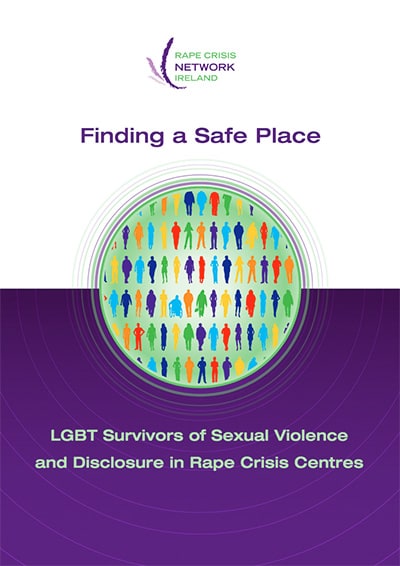 In this report drawn from the RCI information system RCI sought to give a voice to the LGBT survivors coming to rape crisis centres.
In this report drawn from the RCI information system RCI sought to give a voice to the LGBT survivors coming to rape crisis centres.
What these survivors tell us and contained in every
number and percentage in this statistical report is revealing layers of discrimination, violence and vulnerability that must be addressed and challenged. We offer the present evidence, arising from the voice of the many LGBT survivors who have put their trust in their local Rape Crisis Centre at one of the most vulnerable times of their lives, towards that task.
(2016)
Sexual violence disclosed to Rape Crisis Centres
 Asylum seekers and refugees are among the most vulnerable and marginalised groups of survivors attending Rape Crisis Centres in Ireland.
Asylum seekers and refugees are among the most vulnerable and marginalised groups of survivors attending Rape Crisis Centres in Ireland.
This report is a hybrid of statistical and qualitative evidence documenting their experiences, vulnerabilities, and needs. This report also takes a closer look at two issues that have significant relevance to the accessibility and appropriateness of existing services for asylum seeker and refugee survivors of sexual violence: conflict-related sexual violence and the direct provision system.
(2014)
What’s Consent Got To Do With It?

On 28th January 2014, RCNI held a seminar to launch an important piece of research conducted by Pádraig MacNeela, Thomas Conway, Siobhán Kavanagh, Lisa Ann Kennedy and John McCaffrey of NUI, Galway. The research, a qualitative study among university students explored how attitudes to alcohol impact on judgements about consent to sexual activity.
The report was launched by Minister for Children and Youth Affairs, Frances Fitzgerald, with guest speaker Dr. Antonia Abbey, of Wayne State University, Michigan, one of the most published authors on the area of sexual violence and alcohol.
Below, you can download an executive summary of the research, the full report, the policy document released by RCNI to coincide with the launch of the research as well as copies of the presentations given on the day.
Questions and Challenges for a National Response
 There is increasing evidence that children from 13 to 17 years of age experience sexual violence in a way that is significantly different to the younger child in terms of nature, context, relationship to abuser and duration of abuse.
There is increasing evidence that children from 13 to 17 years of age experience sexual violence in a way that is significantly different to the younger child in terms of nature, context, relationship to abuser and duration of abuse.
This was most recently evidenced in the RCNI’s Hearing Child Survivors of Sexual Violence report, (Oct., 2013), regarding children attending specialist sexual violence services in Ireland. This report found that the under 13 child was most likely to experience sexual assault in their own home or the abusers, by a male family member over a period of years.
However, the child between 13 and 18 years old was most likely to experience rape, by a friend, acquaintance or neighbour, with the violence lasting for hours and taking place in outdoor or location other than the home. These stark differences demand differences in responses and prevention. In this document RCNI sets out some key concerns along with gaps, opportunities and challenges which impact across a number of departments and statutory agencies and makes policy recommendations.
(Jan 2014)
Towards a national response
 This specialist report, providing a detailed examination of child sexual abuse, with data that has never been available in Ireland heretofore, is the result of a dynamic collaboration between RCNI, 15 Rape Crisis Centres and Children at Risk Ireland (CARI) using the RCNI national sexual violence frontline data collection system.
This specialist report, providing a detailed examination of child sexual abuse, with data that has never been available in Ireland heretofore, is the result of a dynamic collaboration between RCNI, 15 Rape Crisis Centres and Children at Risk Ireland (CARI) using the RCNI national sexual violence frontline data collection system.
This collaboration, and the RCNI data collection system, places Ireland at the forefront of combating crimes of sexual violence, as it delivers exceptional analysis of the perpetrators including how and where children of different ages and genders are targeted.
(2013)
Older Women and Sexual violence: Recognising and Supporting Survivors
Hearing child survivors of sexual violence: towards a national response
Rape Crisis Centre Governance Resource Pack
31.05.13
Rape, Pregnancy, Abortion – RCNI Release New Figures
10.01.13
Alcohol and Sexual Violence Fact Sheet 9: Rape, Alcohol Consumption and Human Rights
10.12.12
RCNI Statistical Report on Crimes of Child Sexual Violence
20.11.12
Alcohol and Sexual Violence: ICSoR Panel Review
17.11.12
Alcohol and Sexual Violence Fact Sheet 8: Growing a Body of Evidence
31.10.12
Alcohol and Sexual Violence Fact Sheet 6: Alcohol as a Date-Rape Drug
11.09.12
Alcohol and Sexual Violence Fact Sheet 5: Alcohol, Youth and Sexual Violence
14.08.12
Alcohol and Sexual Violence Fact Sheet 4: Alcohol Consumption and Victim Blaming
19.07.12
RCNI Report on Sexual Violence Against People With Disabilities
20.06.12
RCNI Report on Sexual Violence Against People With Disabilities – summary document
20.06.12
RCNI Report on Sexual Violence Against People with Disabilities – summary document (large font)
20.06.12
Alcohol and Sexual Violence Fact Sheet 3: Sex Related Alcohol Expectancies and Sexual Violence
31.05.12
Fact Sheet 1: The extent of the problem in Ireland
18.04.12
RCNI Fact Sheet on Sexual Violence and Older Women in Ireland
28.03.12
RCNI Fact Sheet on the outcomes of pregnancy resulting from rape
29.02.12
Alcohol-and-Sexual-Violence-AAI-Conference-Nov-2011
15.11.11
What does the research and data tell us about male victims of rape in an Irish context?
07.12.10
RCNI Comparative Analysis of Political Party Manifestoes, Election 2007
14.05.07



